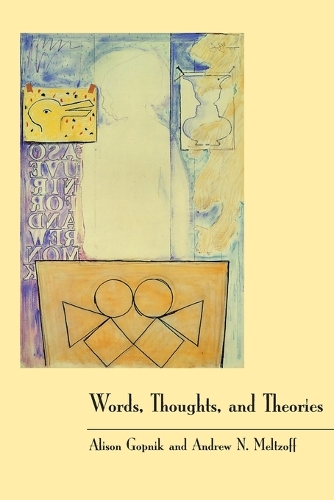
Words, Thoughts, and Theories
(Paperback)
Publishing Details
Words, Thoughts, and Theories
By (Author) Alison Gopnik
By (author) Andrew N. Meltzoff
MIT Press Ltd
MIT Press
1st September 1998
United States
Classifications
Tertiary Education
Non Fiction
Child, developmental and lifespan psychology
153.4
Physical Properties
Paperback
350
Width 152mm, Height 229mm, Spine 15mm
476g
Description
"Words, Thoughts and Theories" articulates and defends the "theory theory" of cognitive and semantic development, the idea that infants and young children, like scientists, learn about the world by forming and revising theories, a view of the origins of knowledge and meaning that has broad implications for cognitive science. Alison Gopnik and Andrew Meltzoff interweave philosophical arguments and empirical data from their own and other's research. Both the philosophy and the psychology, the arguments and the data, address the same fundamental epistemological question: How do we come to understand the world around us The theory theory has led to much research. However, this text looks at the theory in detail and to systematically contrast it with other theories. It also applies the theory to infancy and early childhood, to use the theory to provide a framework for understanding semantic development, and to demonstrate that language acquisition influences theory change in children. The authors show that children just beginning to talk are engaged in restructurings of several domains of knowledge. These restructurings are similar to theory changes in science, and they influence children's early semantic development, since children's cognitive concerns shape and motivate their use of very early words. But, in addition, children pay attention to the language they hear around them and this too reshapes their cognition, and causes them to reorganize their theories.
Reviews
"Beyond the good science that they contribute to their ownidea... it is surprising and wonderful how Gopnik and Meltzofftranscend their own field to demonstratethe relevance of theirresearch to other disciplines." Shaun Gallagher , Journal of Consciousness Studies "The book is astonishing in its scope and clarity. It successfullyintegrates philosophy, cognitive development, and cognitive science in away that has rarely if ever been done. The idea that childrendevelop theories which evolve and reorganize into newer and more powerfultheories, like mini-scientists, is of course not new; but in Gopnik andMeltzoff's hands it received a thorough treatment, across such a wide rangeof domains." Simon Baron-Cohen, Lecturer in Psychopathology, Departments ofExperimental Psychology and Psychiatry, University of Cambridge
Author Bio
Jeffrey Rosenschein is the Sam and Will Strauss Professor of Computer Science at the Hebrew University of Jerusalem.
